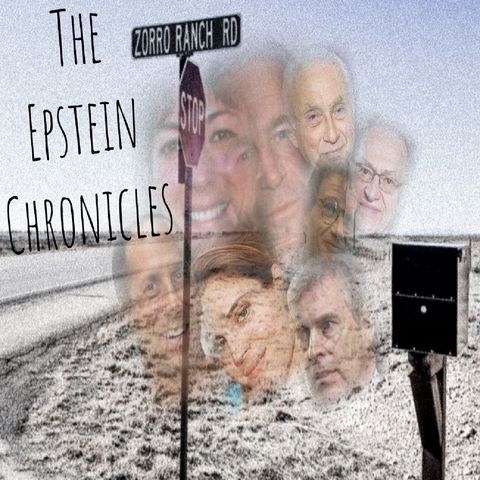The DEA And The Strategy They Use When Dealing With Drug Cartels (9/1/23)

Descarga y escucha en cualquier lugar
Descarga tus episodios favoritos y disfrútalos, ¡dondequiera que estés! Regístrate o inicia sesión ahora para acceder a la escucha sin conexión.
The DEA And The Strategy They Use When Dealing With Drug Cartels (9/1/23)
Esta transcripción es generada automáticamente. Ten en cuenta que no se garantiza una precisión absoluta.
Descripción
The Drug Enforcement Administration (DEA) strategy to decapitate cartel leadership has often failed for several key reasons: - Resilience of Cartels: Cartels are highly adaptable criminal organizations. When a top...
mostra más- Resilience of Cartels: Cartels are highly adaptable criminal organizations. When a top leader is removed, they often have a succession plan in place, and a new leader quickly takes over. This continuity of leadership ensures that the cartel's operations continue relatively uninterrupted.
- Fragmentation: The removal of top leaders can lead to fragmentation within the cartel, with different factions vying for power. This can actually increase violence and instability as these factions fight for control and territory.
- Easily Replaceable Leaders: The drug trade is lucrative, attracting individuals who are willing to step into leadership roles. Removing one leader often leads to the rise of another, sometimes even more ruthless and violent, to take their place.
- Global Nature of Cartels: Many major cartels have operations spanning multiple countries. Removing a leader in one country does little to disrupt the cartel's global operations, as they can quickly adapt and continue their activities elsewhere.
- Corruption and Infiltration: Cartels often have corrupt officials on their payroll or have infiltrated law enforcement agencies. This can tip off cartels about impending operations to capture or kill their leaders, allowing them to escape or take defensive measures.
- Lack of Long-Term Impact: Removing a single leader does not necessarily lead to a significant reduction in drug production, trafficking, or violence. It is a short-term solution that doesn't address the underlying issues contributing to the drug trade.
- Shift in Tactics: Cartels can shift their operational tactics in response to leadership decapitation. They may become more decentralized, making it harder for law enforcement to target specific individuals.
- Resource Allocation: Focusing resources on targeting top leaders can divert attention and resources away from other critical aspects of drug enforcement, such as disrupting supply chains or reducing demand.
- Public Opinion and Backlash: High-profile operations to target cartel leaders can garner significant media attention and public backlash, especially if they result in civilian casualties or political controversies. This can hinder the overall effectiveness of such strategies.
- International Complexity: Cartels often operate across borders, making international coordination necessary. Differences in laws, regulations, and priorities among countries can complicate efforts to decapitate leadership effectively.
(commercial at 8:25)
to contact me:
bobbycapucci@protonmail.com
Información
| Autor | Bobby Capucci |
| Organización | Bobby Capucci |
| Página web | - |
| Etiquetas |
Copyright 2024 - Spreaker Inc. an iHeartMedia Company

Comentarios